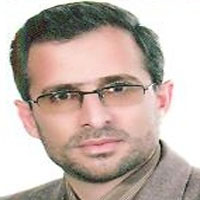Application of cyberspace in Arabic language teaching, needs and challenges (using Delphi method in data collection)
Today, with the astonishing development of mass media and their prominent role in education on the one hand and the epidemic of coronavirus on the other hand, virtual education has played a very important role in the world education system and this examines the strategies and challenges of virtual education. Reminded. Based on this, the present article uses the field-survey method and the method of collecting data questionnaires based on the Delphi method, examines the views of experts in the field of virtual education on the role and application of cyberspace in teaching Arabic in Iran. Accordingly, the respondents of the questionnaires were selected from hardware and software experts active in the field of education, university education experts in language departments, and professors and teachers of Arabic language at the university. After presenting the two stages of the initial questionnaire and confirming its validity and reliability according to the Delphi method, in the third stage, specialized questions were designed in three areas of necessary skills, required support and intelligent educational activities, which were presented in the form of the final questionnaire. The answers received were analyzed by SPSS16 software and the mean sample T-test; The results show the fact that the most important challenge in the virtual education of the Arabic language in Iran is not to look at this issue independently and separately, and therefore the most important needs in this field have been neglected. This independent view, along with benefiting from the experience of Arabic-speaking countries in the field of virtual teaching of the Arabic language and training of experts in the fields of hardware, software and education, can lead to the flourishing and vitality of virtual Arabic teaching. Creating a software platform common to all the organizations active in the field of virtual teaching of Arabic in Iran can be very useful in this regard.
-
A Comparative Analysis of the Unity of the Poem and the Factors of Continuity and Cohesion in Amro Bin Kulthum's Poem
Kadijeh Zarei *, Ali Baqir Tahernia
Journal of Arabic Literatur, Summer 2025 -
Analyzing the Qur'an's linguistic arguments in the discussion of physical resurrection based on Shayim Perelman's reasoning theory
Masoume Taghizadeh, Alibagher Taheriniya *
Iranian Association of Arabic Language and Literature, Winter 2025



